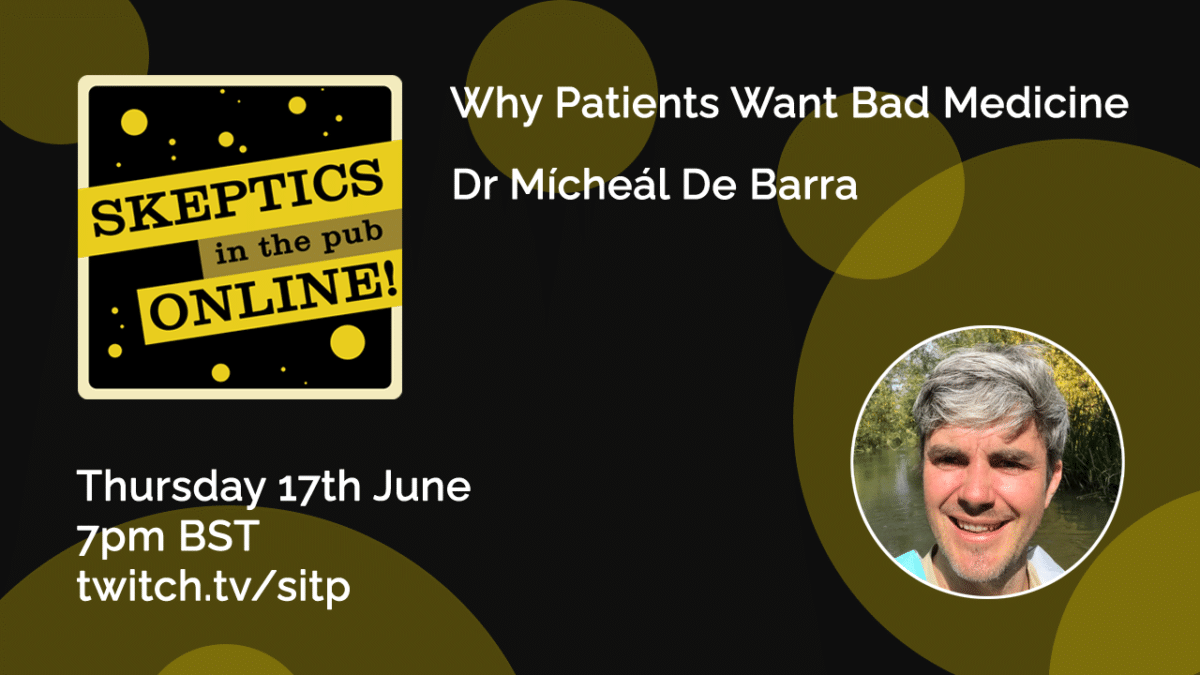For most of human history, an average patient meeting an average doctor was probably harmed rather than helped. This talk will explore how medical treatments can persist for decades – even centuries – despite having little or no beneficial effects. One focus will be on how features of biology and psychology make figuring out what works especially hard without tools like randomised controlled trials. I’ll also look at how features of human psychology can make some kinds of treatments intuitive, despite being useless or worse. Finally, I will examine if the benefits of treatments might lie not in what they do to your body, but in what they communicate to others about your need for care.
Mícheál de Barra is a lecturer in psychology in the Centre for Culture and Evolution, Brunel University London. His research focuses on unnecessary treatment and harmful health behaviours.

